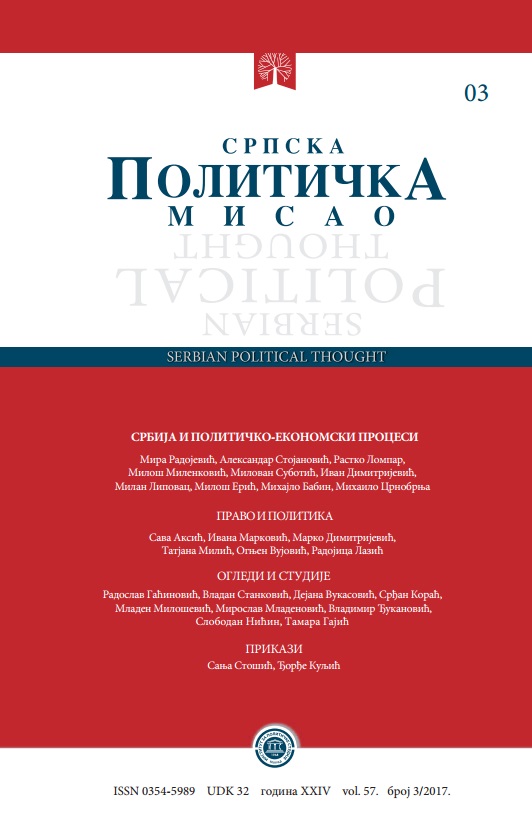Јавни службеник за 21. век: ка савременом учитавању гесла „племство обавезује”
Civil Servant for the 21st Century: Towards a Modern Day Interpretation of the Motto “Noblesse Oblige”
Author(s): Srđan T. KoraćSubject(s): Civil Society, Public Administration
Published by: Институт за политичке студије
Keywords: public administration; social justice; fairness; professional integrity; noblesse oblige
Summary/Abstract: The paper deals with the necessity of reviving the social role of the 21st century civil servants based on the assumption that the idea of social justice becomes vital due to a decade-long recession caused by the uncritical pushing the neo-liberal model of social development as well as by the implementation of corporate and market tools in managing departmental policies – both in developed and transitional societies. By insisting on turning a civil servant in vendors at public services’ stall, the role of public administration in social development has been sidelined from the academic debate and practice, particularly in Serbia where the New Public Management model is applied inconsistently and often is regarded as fashionable. The departing point of the article is the hypothesis that the pragmatic worldview embedded in the New Public Management model reinforces a stance of moral indifference – or at best of a moral minimalism – and by doing that it neglects the communitarian rationale in justifying public policy outcome. Therefore, the article urges that the structural characteristics of the role of civil servants in achieving social justice has to become an important issue of concern of the academic discipline of public administration in Serbia, although the number of civil servants in position to significantly impact the social changes is relatively small, with an even smaller number of those who are willing to take an action. The author argues that the real technocratic superiority over citizens and greater ability of understanding properly the essence of the public interest create moral obligation for a civil servant to contribute through her/his professional performance to the social justice as the fundamental purpose of the life in a democratic political community. The author employs ancient aristocratic ideal contained in the motto of noblesse oblige as a reference point for the design of the 21st century civil servant profile summed up as an unwritten obligation of benevolent, attentive, honour, generous, and responsible behaviour of a high-ranking person to the other members of the community, especially to the lower and non-privileged social layers. The complex technocratic nature of state management emphasizes the specialist knowledge and skills that give civil servant a serious advantage over the majority of citizens in terms of informed debate on plausible policy alternatives to public problems. The author stresses that the operationalization of the concept of social justice in the public administration performance requires a transformation of the social purpose of the whole civil service as profession in accordance with modern interpretation of the aristocratic motto of noblesse oblige. The author concludes that strengthening professional integrity within the guild must be grounded on full respect for the communitarian rationale of public policy as the counterweight to the pragmatic worldview of New Public Management embodied in moral indifference to the existential need of citizens for their self-actualization within the political community.
Journal: Српска политичка мисао
- Issue Year: 2017
- Issue No: 3
- Page Range: 273-288
- Page Count: 16
- Language: Serbian

